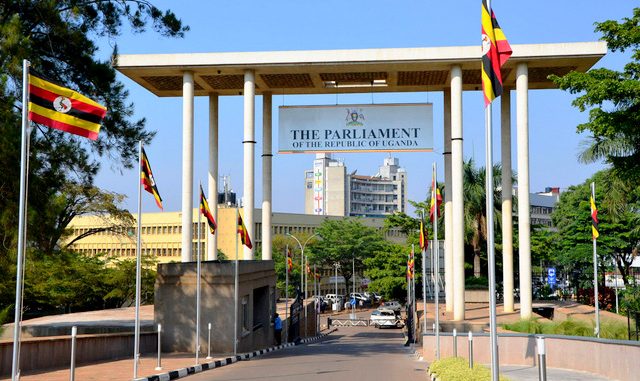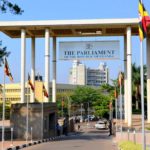Parliament has passed the Mining and Minerals Bill, 2021 which will see the establishment of the Uganda National Mining Company which will manage the government’s commercial holding and participating interests in mineral agreements.
The Bill that was passed on 17 February 2022 mandates the National Mining Company to hold 15 per cent free equity in all large and medium mining ventures as well as have the right to pay up 20 per cent extra shares in the mining ventures at the commercial rate.
The Chairperson of the Committee on Environment and Natural Resources, Hon Emmanuel Otaala who presented the report on the bill said that the mineral agreements and Production Sharing Agreements will apply to highly capitalised investment and complex mining. “Application of these agreements should be limited to areas where the presence of minerals has been ascertained or quantified,” he said.
The new law also provides for the participation of host communities in the entire decision-making chain of mining. This means that information on licences, environment and social impact assessments will be provided both at the national and local government levels.
A new sub-clause to provide that local governments shall receive reports and plans of the companies operating in their jurisdiction every six months was also introduced in the bill.
According to the committee’s report, the move is aimed at curing the defect in the past where non involvement of local governments in mining operations has made it difficult for districts, sub-counties and land owners to assess the expected royalties from within their boundaries.
The amended law mandates applicants for exploration licences to provide a statement with proposals in regard to employment and training of Ugandans, a training plan to that effect and a budget while applying for the license.
It is envisioned that the training should result in a succession plan for minimising dependence on expatriates in favour of skills developed through this training.
The Bill was also amended to provide that during training and employment, the people living in the host communities of the mining operations shall be prioritised.
The Bill was amended to provide for requirements in respect to individuals or a group of individuals applying for prospective licences. The old law only provided for the requirements of a prospecting licence in respect to a company but did not provide for individuals.
The committee also recommended that regulation for exploitation of building substances should be regulated in a separate law rather than being lamped up in a law that regulates minerals. “Government should move a bill to regulate building substances such as sand, clay and murram,” Otaala said.
Kampala Central MP, Hon Muhammad Nsereko said that the harmonised position between government and the committee on access to building materials by locals is welcome. “You might end up finding that over 60 per cent of the land in Uganda is covered with either murram or clay and at the end of the day, if all that is left in the hands of government, we may deny our people that useful income and innovative skills in elementary mining,” Nsereko said.
Kumi Municipality MP, Hon Silas Aogon said that the decision to allow locals access to construction materials like sand, clay and murram was wise. “Do not tamper with those for now because when you do that, you will be increasing the cost of construction and this will in turn increase slums,” said Aogon.
Hon Tony Ayoo (NRM, Kwania County) said that the proposal to train Ugandans in mining areas will improve their skills. “You find that there are minerals in some areas but communities are not part of any mining. They only see foreigners taking over the place and displacing them,” he said.
The new law is intended to provide a robust, predictable and transparent legal regime, improve mining and mineral administration and business processes, ensure efficient collection and management of mineral revenues, promote value addition to minerals and increase mineral trade.
The Bill is also seeks to address emerging issues such as mineral certification, value addition, mineral revenue management and formalisation of artisanal and small-scale miners among others.








